A young pilot in the German air force of 1918, disliked as lower-class and unchivalrous, tries ambitiously to earn the medal offered for 20 kills.
Related Movies

Thorn (2018)
Newlyweds Lisa and Jacob leave for their honeymoon somewhere in the Danish countryside. Their love and faith for each other will soon turn into bitterness and fear.

His (2020)
Shun and Nagisa first meet and fall in love during their first year of high school. While Shun is graduating from university, Nagisa tells him that he doesn't see a future for them. Despite Shun's strong feelings, they go their separate ways. Years later, Shun is now a store owner, living alone in a rural area. Out of the blue, Nagisa arrives with his six-year-old daughter, Sora. Spending time together, Shun realizes he still harbors feelings for Nagisa. Can Nagisa reconcile with his feelings for Shun, which have been there all along?

Being Me (2018)
High school students Jae Nam and Seo Hyun are happy just to be together. But after an unfortunate live broadcast, Jae Nam is suddenly nowhere to be found.
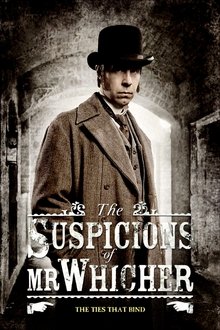
The Ties That Bind (2014)
A divorce case involving a landowner and his young wife spirals into something darker, drawing Mr. Whicher into the heart of the English countryside where he uncovers the most disturbing and destructive of secrets.

As Green As It Gets (2018)
Georg "Schorsch" Kempter is a gardener in a small Bavarian town, working day-in, day-out in his nursery, which is facing bankruptcy. He doesn't like to talk much. He never has. His marriage has long lost all its magic and on top of that, he has trouble to connect with his daughter. Only when he is flying in his own rickety biplane, Schorsch feels truly free. When the owner of the local golf course tries to cheat Schorsch for his money, claiming the shade of green of the grass Schorsch has planted on the golf course is not right, insolvency seems unavoidable. So just when his airplane is about to be impounded, Schorsch grabs the control stick and flies away in an attempt to save his plane and himself. He embarks onto a journey into the unknown, to places he has never seen before, full of odd and special encounters - and with every take-off and every landing, this tough man's heart slowly warms up to what you might call an idea of happiness.

Lady and the Tramp (1955)
Lady, a golden cocker spaniel, meets up with a mongrel dog who calls himself the Tramp. He is obviously from the wrong side of town, but happenings at Lady's home make her decide to travel with him for a while.

Catch-22 (1970)
A WWII military pilot makes a valiant effort to be certified insane in order to be excused from flying missions. But there's a catch.

The African Queen (1952)
At the start of the First World War, in the middle of Africa’s nowhere, a gin soaked riverboat captain is persuaded by a strong-willed missionary to go down river and face-off a German warship.

The Seventh Seal (1957)
When disillusioned Swedish knight Antonius Block returns home from the Crusades to find his country in the grips of the Black Death, he challenges Death to a chess match for his life. Tormented by the belief that God does not exist, Block sets off on a journey, meeting up with traveling players Jof and his wife, Mia, and becoming determined to evade Death long enough to commit one redemptive act while he still lives.

One Flew Over the Cuckoo's Nest (1975)
A petty criminal fakes insanity to serve his sentence in a mental ward rather than prison. He soon finds himself as a leader to the other patients—and an enemy to the cruel, domineering nurse who runs the ward.

Requiem (2006)
Michaela, an epileptic, enrolls in college to study education. She goes off her medication and soon begins hearing voices and seeing apparitions that tell her to avoid religious objects, although she is devoutly Roman Catholic. One priest scoffs at the idea that Michaela could be possessed by demons, but a younger pastor arranges an exorcism for the young woman.

Miracle (2022)
A young novice sneaks out of her convent to deal with a matter that cannot be delayed.
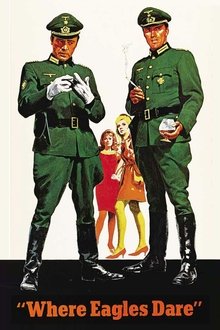
Where Eagles Dare (1968)
World War II is raging, and an American general has been captured and is being held hostage in the Schloss Adler, a Bavarian castle that's nearly impossible to breach. It's up to a group of skilled Allied soldiers to liberate the general before it's too late.
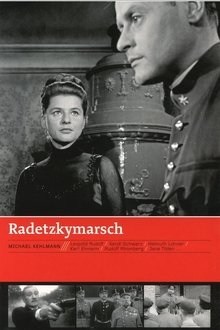
Radetzkymarsch (1965)
The story of the Trotta family during the rise and fall of the Austrian-Hungary empire. Based upon the novel by Joseph Roth.
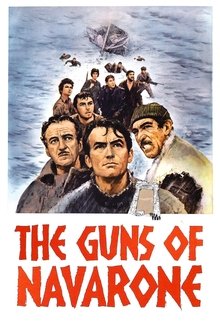
The Guns of Navarone (1961)
A team of allied saboteurs are assigned an impossible mission: infiltrate an impregnable Nazi-held island and destroy the two enormous long-range field guns that prevent the rescue of 2,000 trapped British soldiers.

All Quiet on the Western Front (1979)
At the start of World War I, Paul Baumer is a young German patriot, eager to fight. Indoctrinated with propaganda at school, he and his friends eagerly sign up for the army soon after graduation. But when the horrors of war soon become too much to bear, and as his friends die or become gravely wounded, Paul questions the sanity of fighting over a few hundreds yards of war-torn countryside.
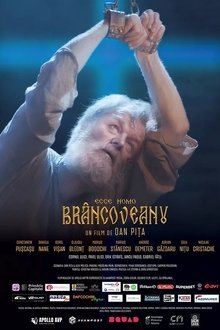
Ecce Homo Brâncoveanu (2024)
A parable about honor and true character, inspired by the reality of the 18th century. Constantin Brâncoveanu preferred to be beheaded in Constantinople alongside his four sons - Constantin, Stefan, Radu, and Matei - as well as by his counselor Ianache Vacarescu, instead of renouncing the Christian faith.

EverAfter (1998)
Danielle, a vibrant young woman, was forced into servitude after the death of her father when she was a young girl. Danielle's stepmother, Rodmilla, is a heartless woman who forces Danielle to do the cooking and cleaning, while she tries to marry off the eldest of her two daughters to the prince. But Danielle's life takes a wonderful turn when, under the guise of a visiting royal, she meets the charming Prince Henry.

Pope Joan (2009)
A 9th century woman of English extraction born in the German city of Ingelheim disguises herself as a man and rises through the Vatican ranks.

Howards End (1992)
A saga of class relations and changing times in an Edwardian England on the brink of modernity, the film centers on liberal Margaret Schlegel, who, along with her sister Helen, becomes involved with two couples: wealthy, conservative industrialist Henry Wilcox and his wife Ruth, and the downwardly mobile working-class Leonard Bast and his mistress Jackie.